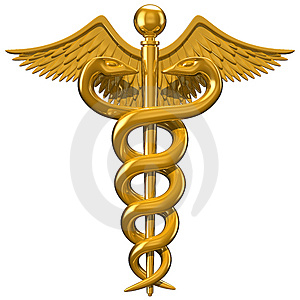 Every so often something happens that restores my faith in the power of the truth. This rarely happens when it comes to health care. Modern medicine is one of the big, dangerous monoliths of our time, a stark symbol of the competitive mindset and the industrial age – the triumph of the machine over the human being.
Every so often something happens that restores my faith in the power of the truth. This rarely happens when it comes to health care. Modern medicine is one of the big, dangerous monoliths of our time, a stark symbol of the competitive mindset and the industrial age – the triumph of the machine over the human being.
Besides being one of the largest industries in the world, Big Pharma is probably one of the most dangerous.
Not long ago, the Journal of the American Medicine Association, the official organ of the primary organization representing physicians in America, publicly admitted that diseases caused by doctors—that is illness created by correctly prescribed medication —is the third leading cause of death in America, responsible for a quarter of a million deaths per year.
To put the magnitude of the problem into perspective, as one study, also in JAMA, once described it, the death rate from modern medicine in America alone as the “equivalent of three jumbo-jet crashes every two days.”
This poor track record is well known by those on the inside. In a throwaway comment, Dr. Allen Rose, the worldwide vice-president of genetics at GlaxoSmithKline, once casually observed that 90 per cent of his company’s products—or any other drug companies’ products—don’t work on the majority of patients.
If any other business maintained this appalling track record, there would be public outcry, Parliamentary and Congressional investigation and swift adoption of new law. With modern medicine there is not even the airing of debate.
This has largely to do with the fact that medicine is a conspiracy of silence, a private conversation—by doctors for doctors.
Private conversation
This conversation has very little opportunity to be heard by you and me. Newspapers, funded by or seeded with board members of the pharmaceutical industry, carry ever fewer stories about medical dangers or promising alternative possibilities. For instance, James Murdoch, whose newspaper The Times led the story discrediting the doctor who challenged the MMR vaccine, was, until recently, a board member of the SmithKline, which manufactures the vaccine.
In the UK the Advertising Standards Association forbids any claims being made about any promising product or therapy because it would interfere with the ‘doctor/patient relationship.’ A British law set down in 1939 forbids anyone outside of conventional medicine from even advising about cancer. Similar laws exist in America.
I tell you all this as background to place in context my shock to learn of the recent release of the most comprehensive assessment ever conducted by any governmental body into homeopathy.
 The report concluded not only that it works but that it is far more cost effective than conventional medicine. In fact, it works so well that patients should be reimbursed for it on the National Health.
The report concluded not only that it works but that it is far more cost effective than conventional medicine. In fact, it works so well that patients should be reimbursed for it on the National Health.
In a rare departure from its history of neutrality on many issues, the Swiss government conducted a detailed inquiry into homeopathy and other alternative therapies.
The task fell to the Swiss Network for Technology Health Assessment, a body created by the Swiss government in 1999 in order to determine the best value for money invested on health.
Major evidence examined
The book-length report by Gudrun Bornhöft and Peter. F. Matthiessen, of the Chair in Medical Theory and Complementary Medicine of the University of Witten/Herdecke in Germany, comprehensively reviewed all the major evidence for homeopathy, from major pre-clinical research (studies with human cell lines, studies on plants and animals and basic research into the chemical changes), and the big ‘gold standard’ trials on humans to systematic reviews, meta-analyses and epidemiological research.
The Swiss scientists had two major criteria for judging the effectiveness of the studies: internal validity (that is, quality of study design and execution) and external validity (whether the studies accurately reflect how homeopathy is used in real life.
Evaluating the external validity of studies is particularly crucial because research into homeopathy is often conducted by doctors or scientists with little understanding of how it is supposed to be used or which treatments work best for which patients. Many high profile studies purporting to debunk treatments like homeopathy are essentially set up to fail because the researchers essentially don’t know what they’re doing.
It works
Once all the data was assessed, the German scientists concluded that ‘many high-quality investigations of pre-clinical basic research proved homeopathic high-potencies induce ‘regulative and specific changes in cells or living organisms.’
Of the systematic reviews of human research, said the report, 20 out of 22 detected ‘at least a trend in favor of homeopathy,’ and five showed results indicating ‘clear evidence for homeopathic therapy.’
The report found particularly strong evidence for the use of homeopathy for upper respiratory tract infections or allergic reactions; 6 of 7 controlled studies were at least equivalent to conventional interventions and of 16 placebo-controlled studies, half showed significant results with homeopathy.
Perhaps most significantly, the report concluded that the effectiveness of homeopathy ‘can be supported by clinical evidence and ‘regarded as safe.’ Applied properly, it said, ‘classical homeopathy has few side-effects and the use of high-potencies is free of toxic effects.’
The Swiss government’s report was particularly scathing about the Lancet, which publicized a 2005 report supposedly to signal the ‘end of homeopathy.’ In the study, the scientific team evaluated 110 clinical trials of homeopathy and then compared them to the same number of trials of conventional medicine. Although the aim was ostensibly to compare the 22 high quality homeopathic trials with nine high quality conventional studies, the team created criteria to eliminate a majority of the best homeopathic trials, thereby supporting their conclusion that homeopathy doesn’t work.
As the Swiss authors noted, this study neglected follow the most basic accepted guidelines on best practice for scientific reporting.
Cost effective
 Aside from evidence about effectiveness, the Swiss government went to great pains to examine whether homeopathy was saving or costing money. To do so, the Swiss government examined data from participating doctors from Swiss health insurers, including all costs for consultation, medications and physiotherapy.
Aside from evidence about effectiveness, the Swiss government went to great pains to examine whether homeopathy was saving or costing money. To do so, the Swiss government examined data from participating doctors from Swiss health insurers, including all costs for consultation, medications and physiotherapy.
As it turned out, those doctors who specialized in homeopathy costs at least 15 per cent less than doctors practicing conventional medicine, even though patients seeking homeopathy tend to be sicker with more chronic or serious ill health – factors that would usually translate into higher health bills.
When treatments of specific illnesses were compared, homeopathy again proved cost-saving; children with upper respiratory tract infections had fewer recurrences of illness and required fewer antibiotics than those receiving conventional drugs.
In other cases, using homeopathy led to less dependence on drugs. In the case of more than 500 patients with rheumatic disease, nearly a third were able to stop taking conventional medication, and another third reduce their use of drugs. Homeopathic fertility treatment for women offered one of the largest cost savings of all, when compared to standard medical treatment.
Homeopathy also saved in hospital bills; women patients using homeopathic doctors were six times less likely to land in hospital than were those using conventional doctors.
In the land of the pharma
Perhaps the most remarkable aspect of this is not simply that as a result of this study, homeopathy is now enshrined in the Swiss constitution, and paid for by public money, but that this has occurred in a land where two of the top largest pharmaceutical firms have their base.
It also occurred precisely at the point where initiatives in the European Union (of which Switzerland is a part), funded by the pharmaceutical industry, are busily banning or drastically curtailing the availability of nutritional supplements and many alternative treatments with a long history of success.
Sometimes, just sometimes, the Jedi knights prevail over the death star.
Lyn McTaggart

Do you have a reference to the study?
Small factual error: Switzerland is not part of the EU — they guard their neutrality zealously.
Thank you for posting this. No doubt medical techniques that do not generate large profits do not receive funding for studies.
Hi Seth,
Here is a link to the full 41 page report. http://www.homeopathyheals.me.uk/site/images/stories/pdfs/homeopathy%20in%20swiss%20healthcare.pdf
Lauren